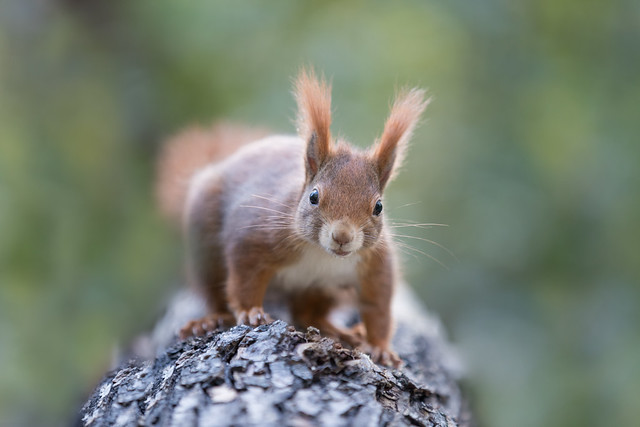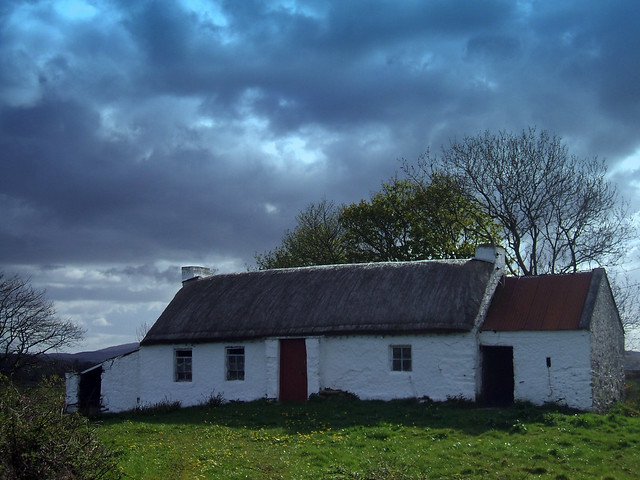Words for heart, core, centre and related things in Celtic languages.
Words marked with a * are reconstructions.
| Proto-Celtic | *kridyom = heart, centre, focus, love, dear one, valour |
|---|---|
| Old Irish (Goídelc) | cride [ˈkʲrʲiðʲe] = heart, |
| Middle Irish (Gaoidhealg) | cride = heart, centre, middle part, focus, affection, love, dear one, valour cridecán = little heart, heartlet (term of endearment) cridech = stout-headed cridechair = benign, kind, beloved cridemail = hearty, courageous, kind cridén = dear one, heartlet (term of endearment) cridenas = heart-trembling, fright and terror cridiscél = moving tale, special wish, darling |
| Irish (Gaeilge) | croí [kɾˠiː] = heart croíán = gallant, playboy croíbhriseadh = heart-break croíbhriste = heart-broken, heart-breaking croíbhrú = contrition croídín = cuddle, little darling croíléis = light-heartedness, merriment, sport croíléiseach = light-hearted, merry, sportive |
| Scottish Gaelic (Gàidhlig) | cridhe [krʲi.ə] = heart, courage, centre, middle cridheachan [krʲi.əxan] = small heart, chest brooch cridhealas [krʲi.əl̪ˠəs] = cheerfulness, hilarity, gaiety,jollity cridhean [krʲi.an] = small heart, gallant cridheil [krʲi.al] = cheerful, hearty, jolly cridhe briste = broken heart, broken spirit cridhe-leòn = heartache cridhe teòma = a tender heart |
| Manx (Gaelg) | cree [kriː] = heart, hub, core, centre creeoil = cheerful, hearty, inspiring, courage cree brisht = bleeding heart, heartbroken cree cloaie = hardhearted, stony, heart y chree = dearest, my heart, my sweetheart |
| Proto-Brythonic | *krėð = (?) |
| Middle Welsh (Kymraec) | craidd = centre, middle, heart |
| Welsh (Cymraeg) | craidd [krai̯ð] = centre, middle, heart, kernel, essence craidd disgyrchiad, craidd disgyrchiant = centre of gravity pwnc craidd = core subject |
| Middle Cornish (Cernewec) | cres, crês, creys = middle, centre, midst, heart |
| Cornish (Kernewek) | kres = centre, middle, waist kresnna, kresedna = to centralise kresek = average, medium kresel = central kresen = centre kresfoesik = centrifugal kreshwilus = centripetal kresosel = medieval kresvorek = Mediterranean |
| Middle Breton (Brezonec) | creis, creiz, crais = centre, middle creisen = centre, central craisnos, crei-nos, creiss-noss = midnight, north |
| Breton (Brezhoneg) | kreiz [ˈkrɛjs] = centre, middle kreiznoz = midnight, north kreisteiz [krɛjs.ˈtɛjs] = noon, south kreizenn [ˈkrɛj.zɛn] = centre, central kreizennañ [krɛjˈzɛ.nːã] = centraliser kreiz-kêr [krɛjsˈkɛːr] = town/city centre |
Etymology: from PIE *ḱr̥d- from *ḱḗr (heart) [source]. Words from the same roots include heart and cardiac in English, cor (heart) in Spanish, srdce (heart) in Czech and sirds (heart) in Latvian [source].
| Proto-Celtic | *kalwond- = heart |
|---|---|
| Proto-Brythonic | *kalwon = (?) |
| Middle Welsh (Kymraec) | callon, kallon = heart, bosom, breast gallondit, kalondit = courage, bravery, fortitude kallonni = to hearten, encourage, comfort callonnyawc, callonawc, calonnawg, kylonog = valiant, courageous |
| Welsh (Cymraeg) | calon [ˈkalɔn] = heart, bosom, breast, womb matrix, belly, entrails, centre, pith, core, essence, spirit, thought, intent, courage, confidence calondid = courage, bravery, fortitude, magnanimity, willingness, generosity, gentleness, mercy calonnaf, calonni = to hearten, encourage, comfort calonnog = valiant, courageous, plucky, hearty, willing, ready, enthusiastic, sincere, genuine |
| Middle Cornish (Cernewec) | calon = heart |
| Cornish (Kernewek) | kolon = heart kolonekter = courage, valour kolonnek, kolodnek = brave, cordial, courageous, fearless, hearty, kindly, genuine, sincere, truthful kolonnen = core |
| Middle Breton (Brezonec) | calon = heart |
| Breton (Brezhoneg) | kalon [ˈkɑː.lɔ̃n] = heart, soul, courage, chest, stomach, kindness kalonad = heartache kaloneg = cordial, courageous, warm, valiant kalonegezh [ka.lɔ̃.ˈnɛː.ɡɛs] = cordiality, courage, encouragement kalonek [ka.ˈlɔ̃ː.nɛk] = courageous, cordial, warm kalonekaat [ka.lɔ̃.ne.ˈkɑːt] = to encourage kalonenn = core, centre kalonour [kaˈlɔ̃ː.nur] = cardiologist kalonus = fortifying |
Etymology: unknown, possibly related to colwedd (breast, heart) and/or coludd (bowels, intestines, guts) in Welsh [source].
Sources: Wiktionary, Am Faclair Beag, Online Manx Dictionary, Teanglann.ie, eDIL – Electronic Dictionary of the Irish Language, In Dúil Bélrai English – Old Irish glossary, Geiriadur Prifysgol Cymru, Gerlyver Kernewek, Dictionaire Favereau, TermOfis, English – ProtoCeltic WordList (PDF), Etymological Dictionary Of Proto Celtic










